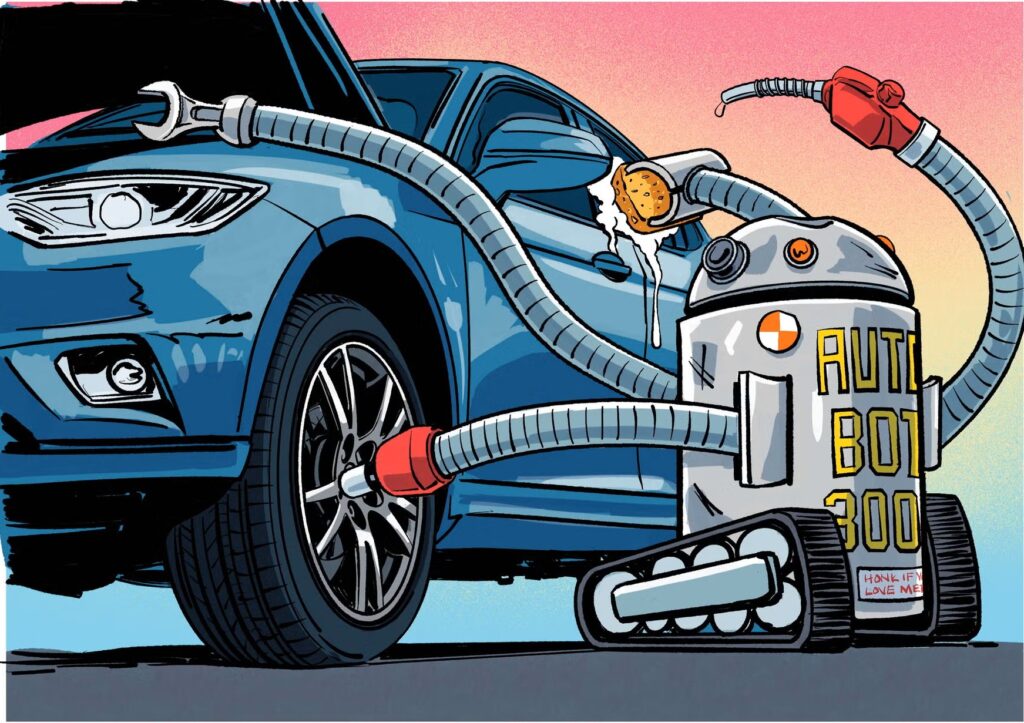Proper car maintenance is essential for ensuring longevity, safety, and optimal performance. Regular upkeep can help you avoid costly repairs and unexpected breakdowns. Whether you’re a seasoned driver or a new car owner, following these key maintenance tips will keep your vehicle in top condition.
1. Regular Oil Changes
Oil is the lifeblood of your engine, lubricating its components and preventing excessive wear. Check your owner’s manual for the recommended oil change intervals, typically every 3,000 to 7,500 miles, depending on your vehicle and driving conditions.
Steps for an Oil Change:
- Use the right type of oil as recommended by your manufacturer.
- Check the oil level regularly using the dipstick.
- Change the oil filter along with the oil.
2. Monitor Tire Pressure and Tread Depth
Tires play a crucial role in vehicle safety, fuel efficiency, and handling. Underinflated or worn-out tires can lead to poor performance and even accidents.
Tire Maintenance Tips:
- Check tire pressure monthly using a pressure gauge.
- Inflate tires to the recommended PSI found in your owner’s manual.
- Rotate tires every 5,000 to 7,500 miles for even wear.
- Inspect tread depth; replace tires when tread depth is below 2/32 of an inch.
3. Keep an Eye on Fluids
Your car relies on various fluids to function correctly. Regularly check and top off essential fluids, including:
- Coolant – Prevents the engine from overheating.
- Brake fluid – Ensures proper braking performance.
- Transmission fluid – Keeps the transmission system running smoothly.
- Power steering fluid – Aids in smooth steering.
- Windshield washer fluid – Helps maintain visibility.
4. Replace the Air Filter
A clean air filter improves fuel efficiency and engine performance. A clogged filter can restrict airflow, causing your engine to work harder. Check and replace your air filter every 12,000 to 15,000 miles, or as recommended in your manual.
5. Inspect the Battery
A dead battery can leave you stranded. To ensure reliability:
- Check battery terminals for corrosion and clean them if needed.
- Test your battery regularly, especially before winter.
- Replace your battery every 3 to 5 years, or sooner if signs of weakness appear.
6. Maintain Your Brakes
Your brakes are one of the most critical safety components in your car. Listen for squeaking or grinding noises and inspect brake pads regularly. Brake pads typically need replacement every 20,000 to 50,000 miles, depending on driving habits.
7. Follow the Manufacturer’s Maintenance Schedule
Every vehicle comes with a manufacturer-recommended maintenance schedule. Adhering to these guidelines ensures your car gets the necessary check-ups and part replacements at the right intervals.
8. Keep Your Car Clean
Regular washing and waxing protect your car’s paint and prevent rust buildup. Cleaning the interior also extends the life of seats, carpets, and dashboard components.
9. Listen for Unusual Noises
Strange noises, such as squeaks, rattles, or knocking sounds, may indicate potential issues. Addressing these problems early can prevent costly repairs.
10. Drive Responsibly
Aggressive driving, such as rapid acceleration and hard braking, puts unnecessary strain on your engine, brakes, and tires. Smooth driving habits contribute to better fuel efficiency and prolong the life of your car.



